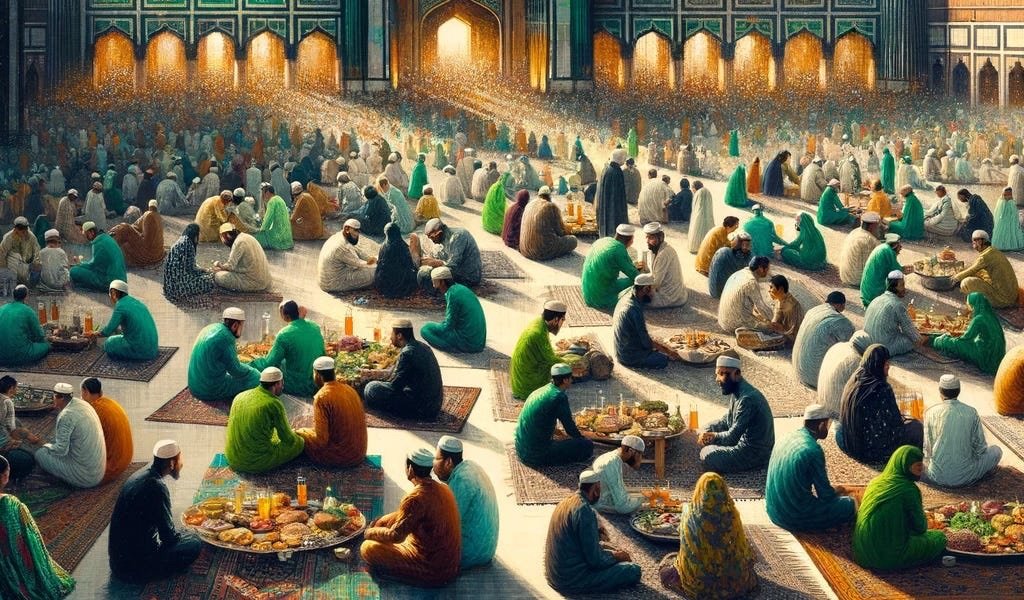“Tere mäthe pe ye añchal bahut hi khuub hai lekin, ta is äñchal se ik parcham banã lett to achchha tha”
Begum Qudsia Aizaz Rasul’s journey embodies this couplet’s essence, where the veil of tradition transforms into the banner of empowerment. She was not just a leader but a symbol of resilience who redefined the role of Muslim women in India.
She is a shining beacon of courage and progress in the annals of India’s history.
She embodies the indomitable spirit of a Muslim woman who defied societal norms to shape the nation’s future. As the sole Muslim woman member of the Constituent Assembly, her contributions resonate with the ideals of empowerment, challenging the constraints imposed by religion, gender, and class. Her life story is a clarion call for Muslim women today to step into the public sphere and embrace their rightful place in nation-building.
Begum Rasul’s journey began in an era when women, especially Muslim women, were largely absent from public life. Hailing from an affluent family in Malerkotia, Punjab, she could have led a life of privilege and leisure. Instead, she chose to immerse herself in public service. In 1937, she shattered stereotypes by contesting and winning a non-reserved seat in the United Provinces Legislative Council elections, becoming a trailblazer for Muslim women in politics. Later, as Leader of Opposition in the UP Assembly in 1950 and a member of the Rajya Sabha in 1952, she played a pivotal role in shaping policies that impacted millions. Her achievements exemplify the potential of Muslim women to lead and effect change, even in the face of adversity. Begum Rasul’s defiance of societal conventions is a story of resilience and determination. From giving up the purdah in 1937 to contesting elections, to publicly opposing the zamindari system despite her privileged upbringing, she consistently challenged regressive norms. She fought against the perception that Muslim women were confined to domestic spaces, urging her sisters to step out of the shadow of the veil and claim their rightful place in society. Her autobiography, From Purdah to Parliament, chronicles this journey and remains a testament to her resolve to inspire women to rise above societal constraints. Her words in the Constituent Assembly, “Reservation is a self-destructive weapon which separates minorities from majorities for all time,
,” reflect
her vision of a unified, secular India where communities coexist with trust and harmony. She called on Muslims to shed separatist tendencies and actively participate in building a truly democratic and inclusive nation. Begum Rasul’s contribution to India’s independence and nation-building, extends beyond politics.
She stood firm on contentious issues like opposing minority reservation, aligning with leaders like Sardar Patel in advocating for a unified electorate instead. Her stance against religion-based reservations was revolutionary, as she argued that Muslims should rely on goodwill and integration rather than isolation. Her bold decisions during a time of communal tensions demonstrated her unwavering commitment to India’s unity and integrity.
Begum Rasul’s life is a source of inspiration for Muslim women navigating the challenges of modern India. Her leadership in politics, advocacy for women’s rights, and role as the president of the Indian Women’s Hockey Federation for nearly two decades, illustrate her multifaceted contributions. Her recognition with the Padma Bhushan in 2000 is a reminder of her enduring legacy. For Muslim women today, her story is a call to action. It urges them to participate in public life, fight societal bondages, and challenge stereotypes that attempt to confine them. Whether it is in politics, education, sports, or social work, the spirit of Begum Rasul lives on in every woman who dares to dream and acts to make those dreams a reality.
As India celebrates its Republic Day, revisiting the legacy of Begum Qudsia Aizaz Rasul is both timely and essential. She represents the power of one woman’s resolve to make a difference. In a world still grappling with issues of representation and equality, her story underscores the importance of inclusivity and the potential of Muslim women to contribute to the nation’s progress. Let her journey inspire a new generation of Muslim women to step forward, break barriers, and claim their space in shaping India’s future. As she wrote, “The silent Muslim women must find their voice,” and in doing so, they honour not just her legacy but also the ideals of the republic she helped build. Her story is a beacon of hope, urging Muslim women to turn their “aanchal” into a “parcham” and take charge of their destinies.
- Resham Fatima, Masters in International Relations, Jawaharlal Nehru University



